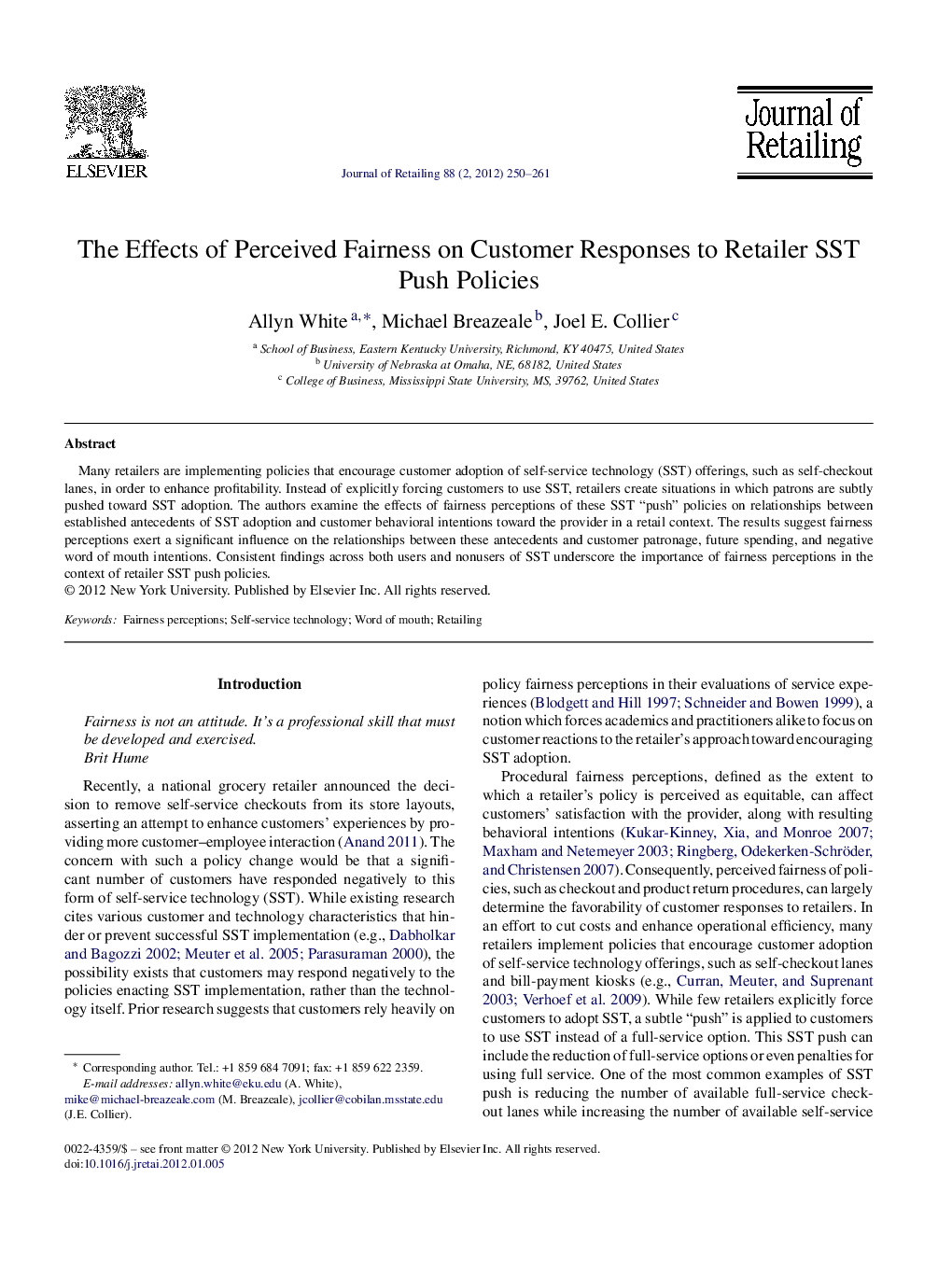| Article ID | Journal | Published Year | Pages | File Type |
|---|---|---|---|---|
| 886423 | Journal of Retailing | 2012 | 12 Pages |
Many retailers are implementing policies that encourage customer adoption of self-service technology (SST) offerings, such as self-checkout lanes, in order to enhance profitability. Instead of explicitly forcing customers to use SST, retailers create situations in which patrons are subtly pushed toward SST adoption. The authors examine the effects of fairness perceptions of these SST “push” policies on relationships between established antecedents of SST adoption and customer behavioral intentions toward the provider in a retail context. The results suggest fairness perceptions exert a significant influence on the relationships between these antecedents and customer patronage, future spending, and negative word of mouth intentions. Consistent findings across both users and nonusers of SST underscore the importance of fairness perceptions in the context of retailer SST push policies.
Graphical abstractFigure optionsDownload full-size imageDownload as PowerPoint slideHighlights► We suggest that retailers should consider fairness perceptions when encouraging customers to use self-service technology. ► We model the antecedents and consequences of customer fairness perceptions in an SST push policy context. ► We present significant effects of fairness perceptions on customer intentions regarding the retailer.
